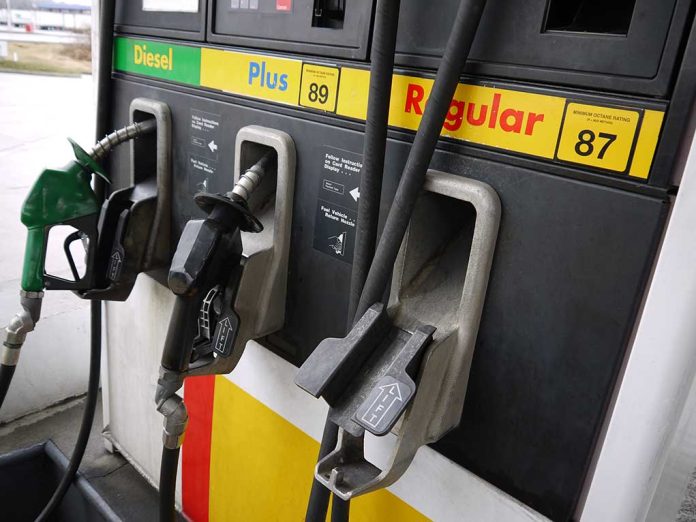
(RepublicanJournal.org) – When you go to fill up your car with gas, you generally encounter two options wherever you go: regular and premium. Premium, as its name suggests, is more expensive than regular. So, does this extra spending represent good value for vehicle owners over the long term, or should you just stick with regular gas to save money?
What’s the Difference Between Regular and Premium?
All brands of gas have a ranking known as an octane number. These numbers indicate the ability of a certain type of fuel to remain undetonated despite compression in an internal combustion engine. The higher the number, the more compression gas can withstand before detonating, and the better the performance of the gas.
In America, regular gasoline usually has an octane of 87. Gasoline with an octane rating of 89 is sometimes referred to as midgrade, while anything with a rating of 91 or more is regarded as premium. Some gas stations offer fuel with an octane of 93 or 94; these products can be referred to as super-premium or ultra-premium.
Do You Need Premium Gas?
If you’re driving a high-performance vehicle, you should use premium gas. High-octane gas will allow your engine to perform at its best, and regular gas might actually damage a high-performance engine after sustained use, costing you money in the long run. This is even more of an issue for older performance cars, as the computer systems in newer models allow for smoother running with ordinary fuel.
However, for ordinary commuter cars, it’s a different story. Experts say you shouldn’t be investing in premium gas unless the user manual for your vehicle explicitly recommends it. Certain models get better fuel economy when using high-quality gas, but, for the majority of commuter vehicles, regular gas will get you more bang for your buck.
Fuel Theft
In the context of ballooning gas prices, criminals have come up with an innovative new way of profiting from unsuspecting citizens. Thieves across the country have been using drills to break into gas tanks and extract the fuel inside. Older siphoning methods don’t work on new car models because designers have included rollover valves in their vehicles in more recent years, and these block siphons. Criminals have gotten around this issue by drilling straight into the tank.
So, if you’re concerned about criminals taking your precious fuel straight out of your car, that might be one more reason to stick to regular gas.
Copyright 2022, RepublicanJournal.org









